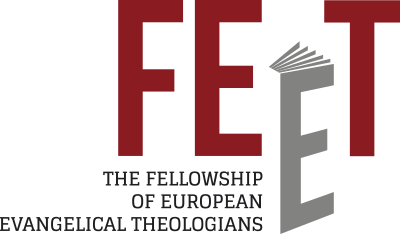Ad de Bruijne - Featured Author - EJT
Ad de Bruijne is professor of Ethics and Spirituality at the Reformed Theological University Kampen (The Netherlands). This institute is one of the birth places of Dutch Neocalvinism (Abraham Kuyper, Herman Bavinck, Klaas Schilder, Jochem Douma). One of its aims is offering an MDiv for the education and formation of pastors. De Bruijne writes a monthly column in a Dutch newspaper.
De Bruijne was born in Amsterdam but spent his youth mainly in Amersfoort. As a child of the sixties and seventies he has always been very interested in the so-called ‘Third World’ and in mission, evangelisation, overseas development aid, politics and justice. He started his study of theology in order to become a missionary, but later felt guided towards local ministry in a big city. As a minister he has served two congregations (Nijverdal and Rotterdam) before being appointed at Kampen University; however, he continues to preach regularly. De Bruijne is married; he and his wife live in Kampen and they have six children, four of whom are married.
De Bruijne is involved in the international Neocalvinist movement and the connected ‘Kuyper-renaissance’. His article ‘Values in our society – with social, historical and anthropological aspects’ appears in the October 2015 issue of European Journal of Theology.
Article Summary Drawing on empirical social scientific research, this article first presents a picture of the dominant values in contemporary European societies. Building on this, a historical-philosophical approach (MacIntyre) explains this picture’s fragmentary and incoherent character as resulting from the post-Christian condition. However, anthropological considerations (moral biology, moral psychology, cultural anthropology) uncover some shared and lasting moral convictions in humanity, which should teach Christians not only to complain about decay but also to be open to the possibility of progress. Furthermore, a theological analysis of (post-)modernity detects both the highest cultural fruits of the Christian truth and their most deplorable post-Christian distortions at the same time (Kuyper, O’Donovan). Modernity with its high self-esteem is secularised eschatology, which should make Christians careful not to mirror its inflated optimism with one-sided pessimism. Prevalent values turn out to be morally ambiguous, as is shown in values such as individual self-realisation, freedom, tolerance, equality, privacy, democracy, free enterprise and compassion. The article concludes with a discussion of possible Christian ethical approaches and specific challenges for Christians with respect to the values of (post-)modern Europe. Christians are called to be prophets, not only to criticise but precisely to clarify the specific moral deadlocks of our society.


